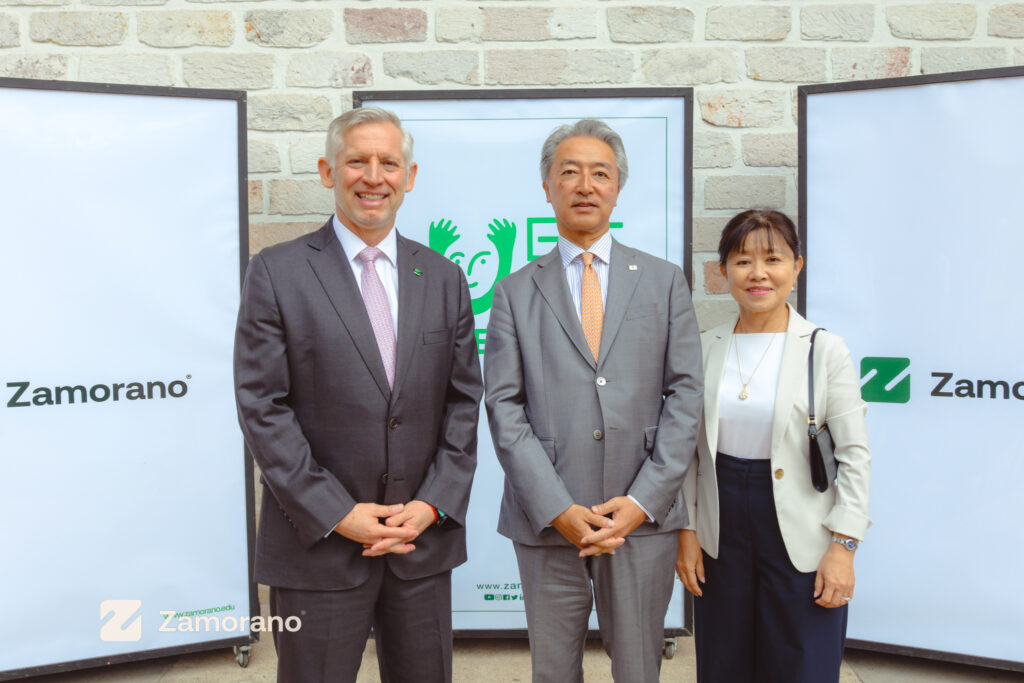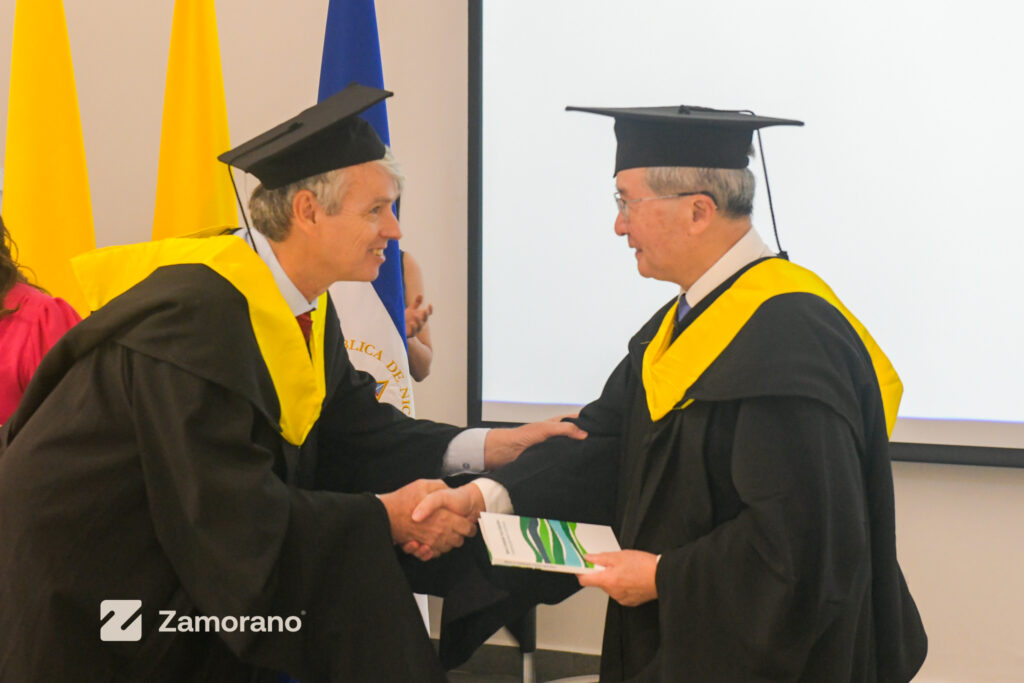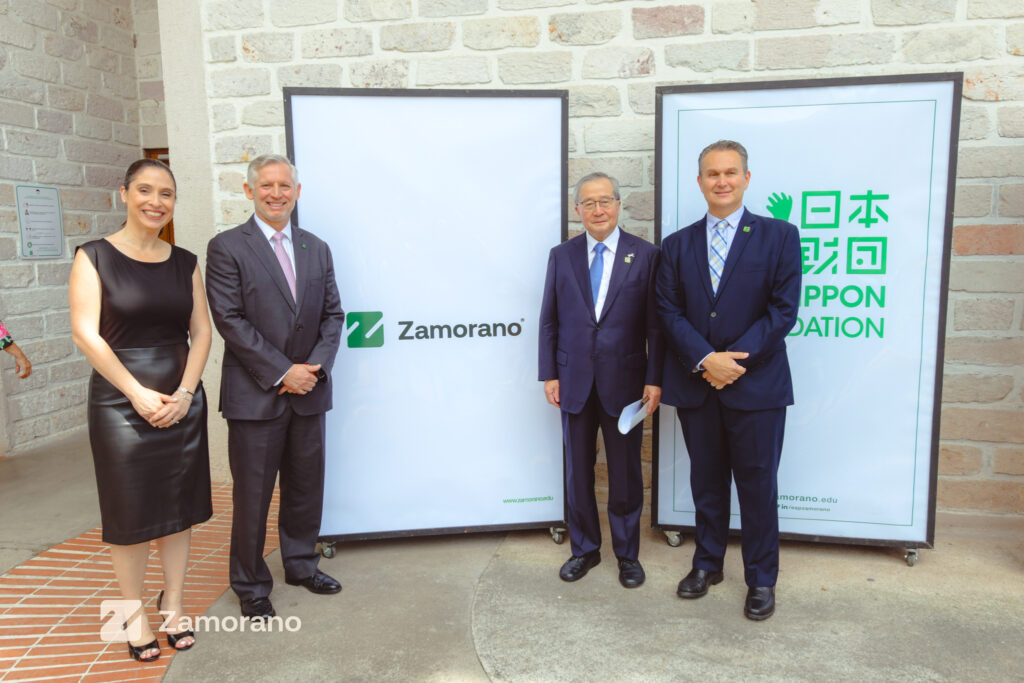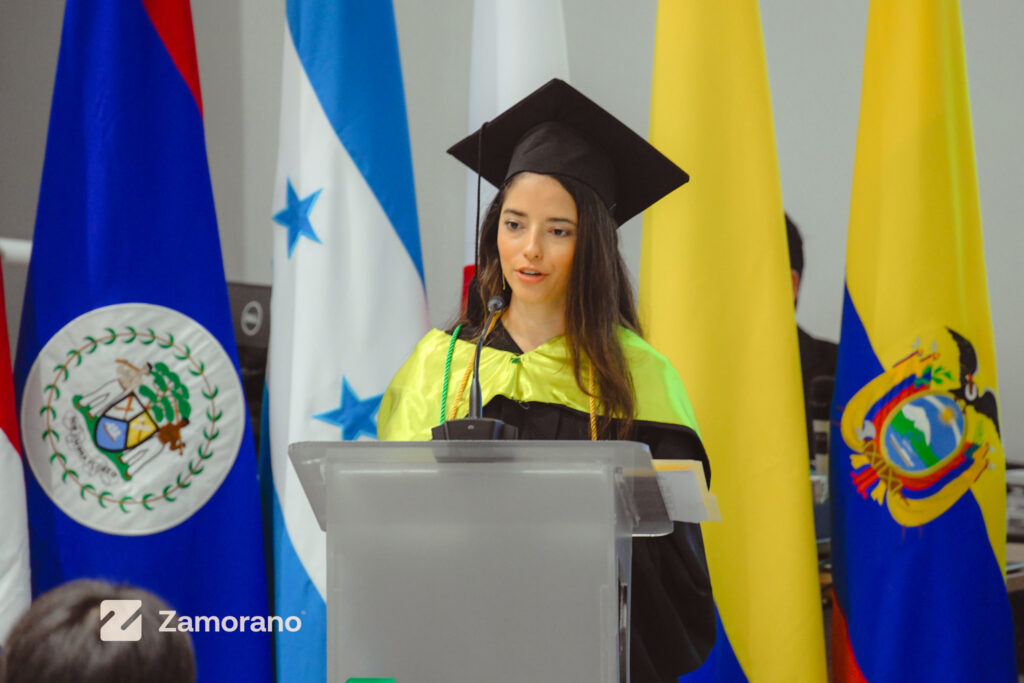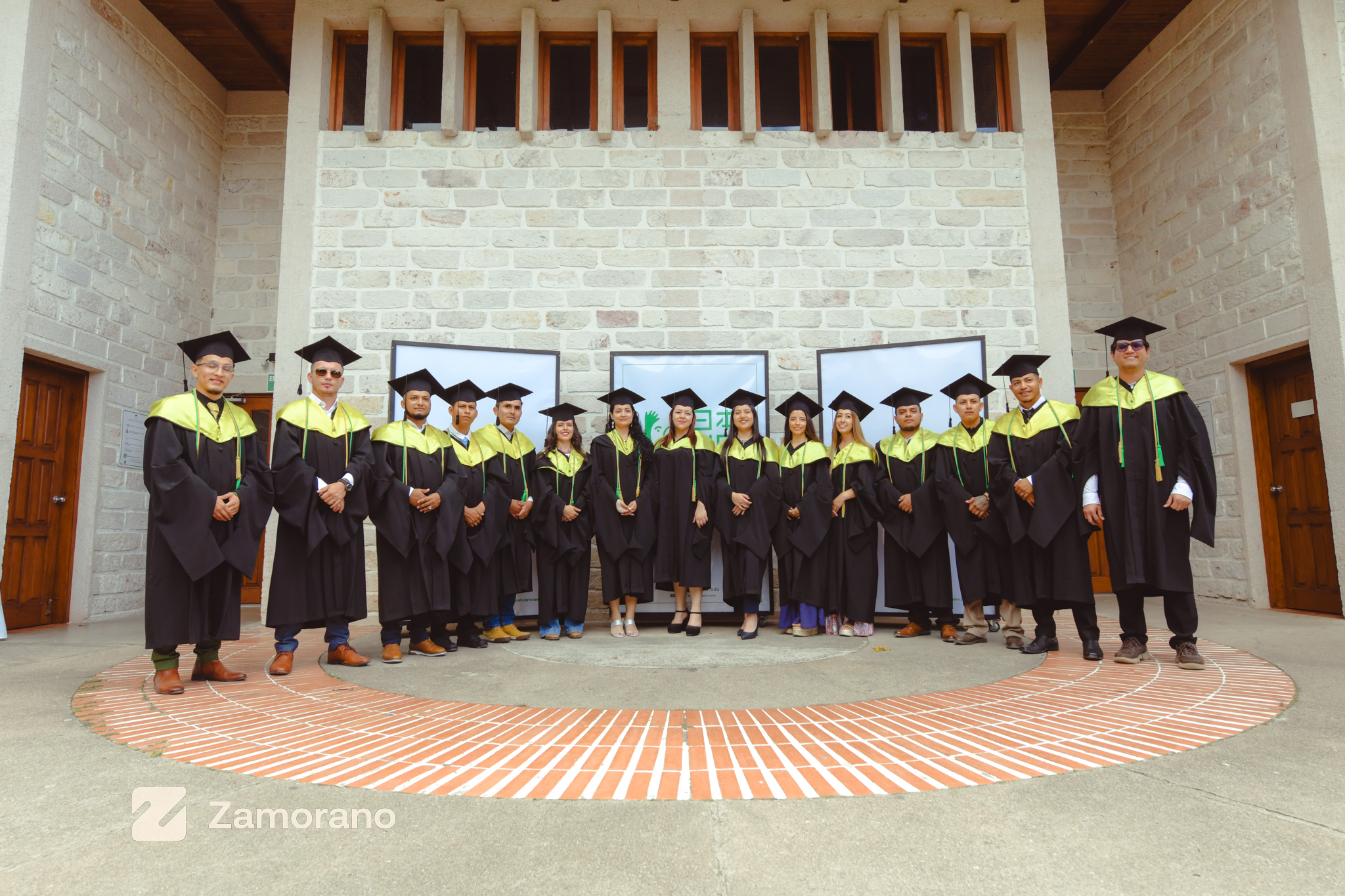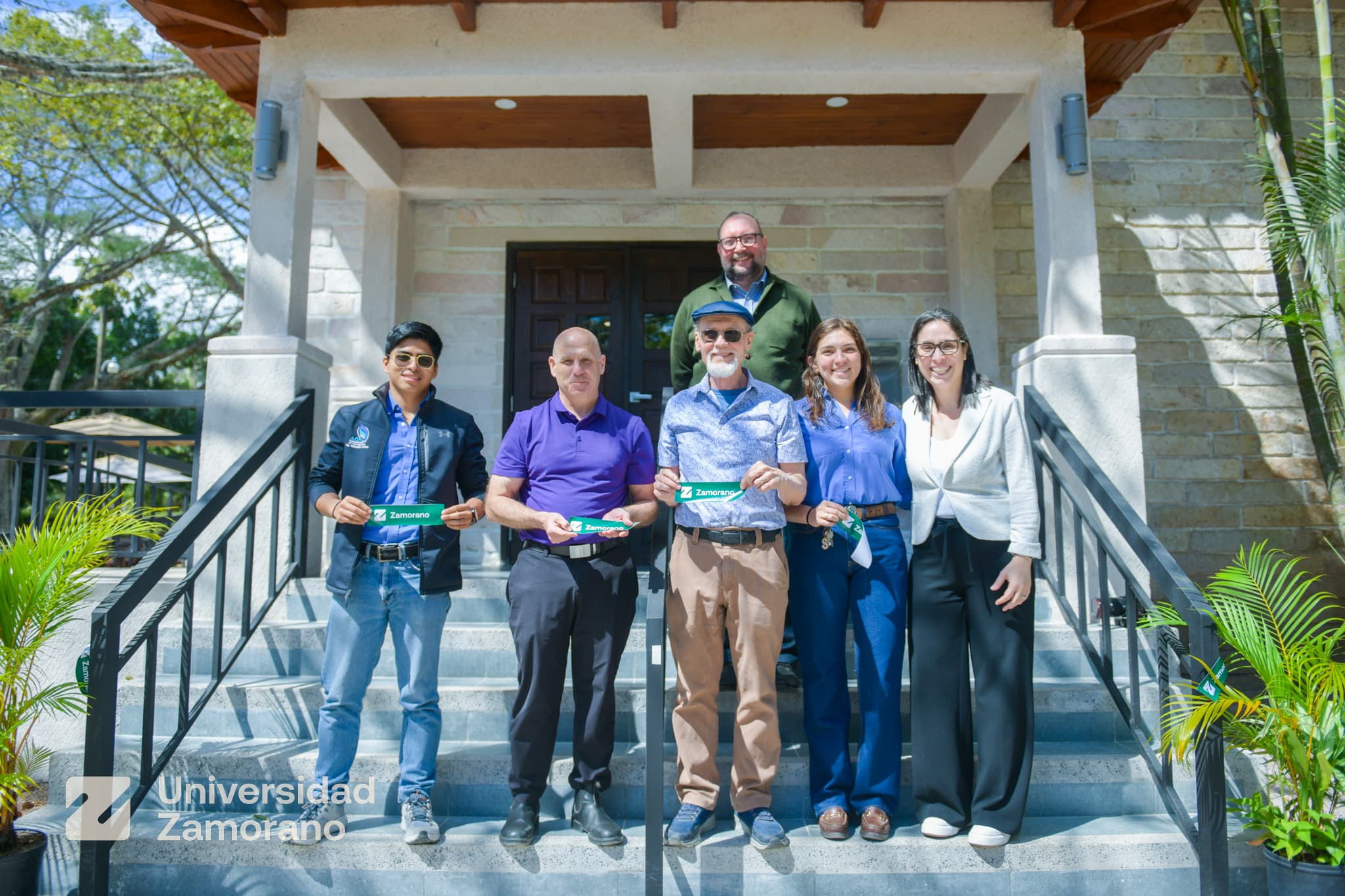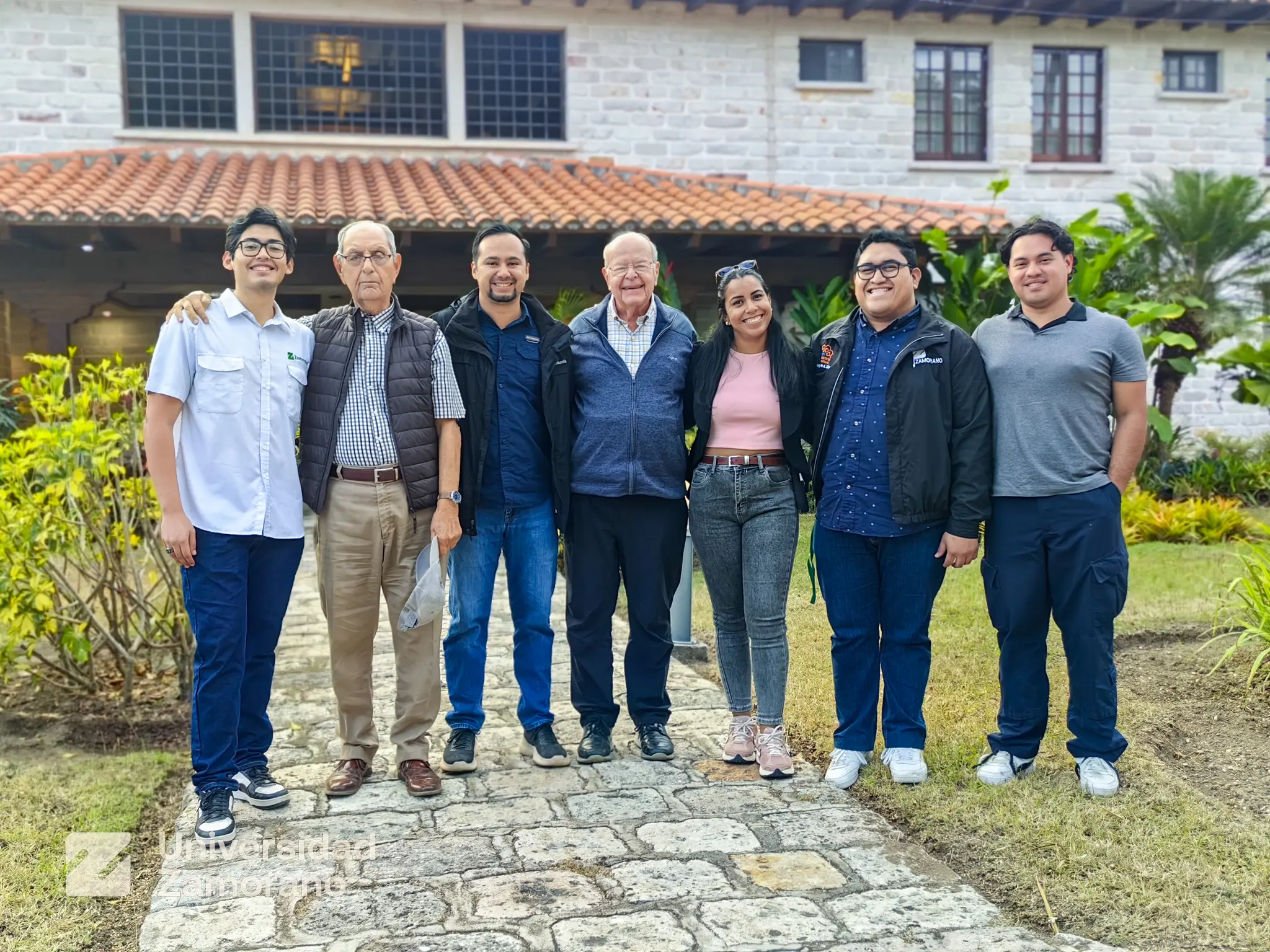Zamorano, September 14, 2024
On Saturday, September 14, the graduation ceremony for the last cohort of the Master's in Sustainable Tropical Agriculture was celebrated with great pride and emotion on the Zamorano campus. This event marked the end of a key academic cycle aimed at training professionals in the field of tropical and sustainable agriculture, with 15 students from Colombia, Nicaragua, Guatemala, Ecuador, Peru, Honduras, Belize, and Costa Rica participating.
Among the graduates, 9 are men and 6 women, all of whom have demonstrated exceptional commitment to sustainable development and innovation in their respective countries. The training of these professionals has been made possible thanks to the generous support of the Nippon Foundation of Japan and CGIAR, institutions that have been key pillars in the realization of this master's program.
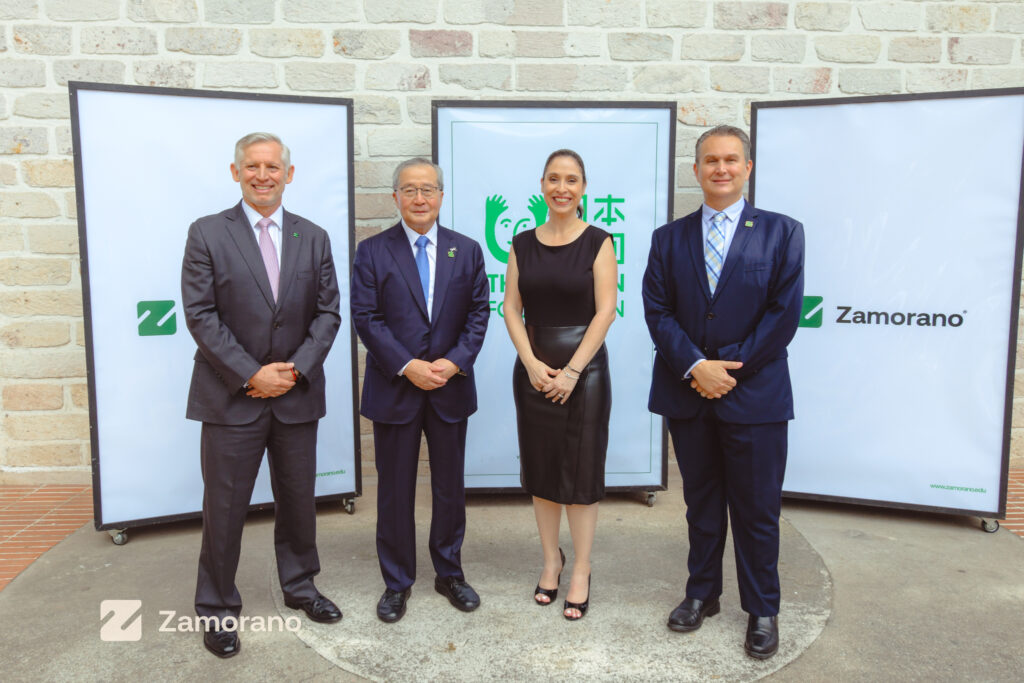
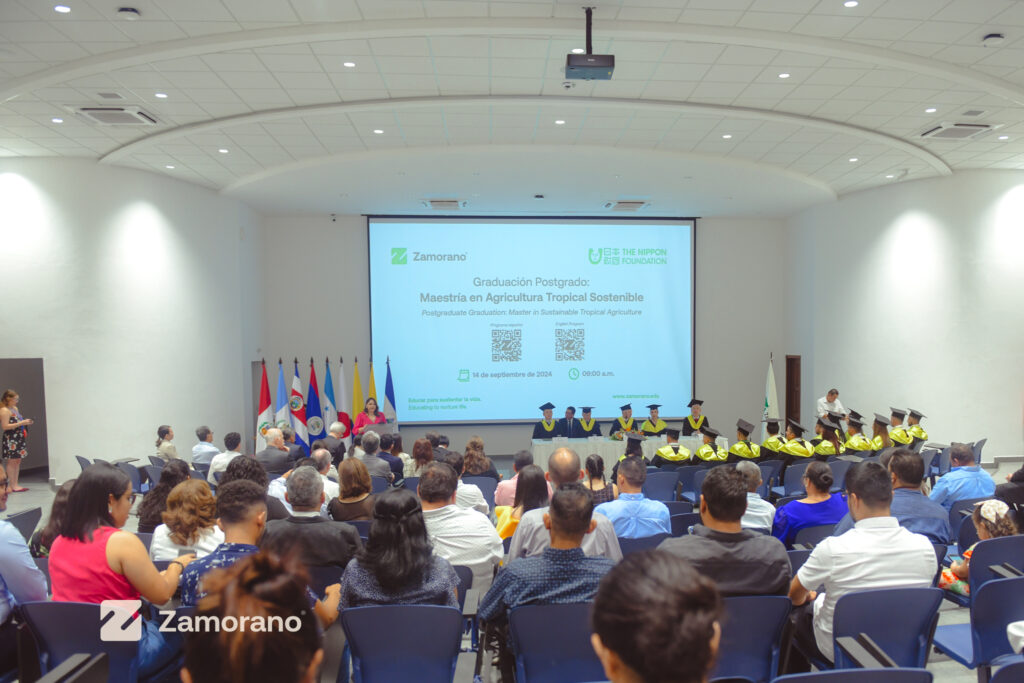
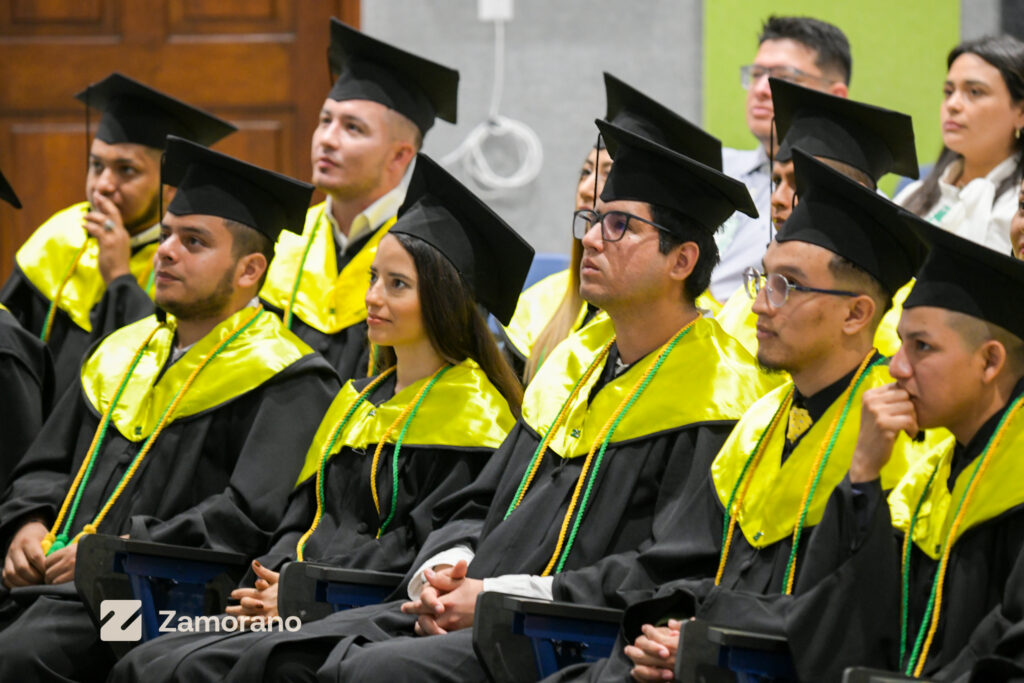
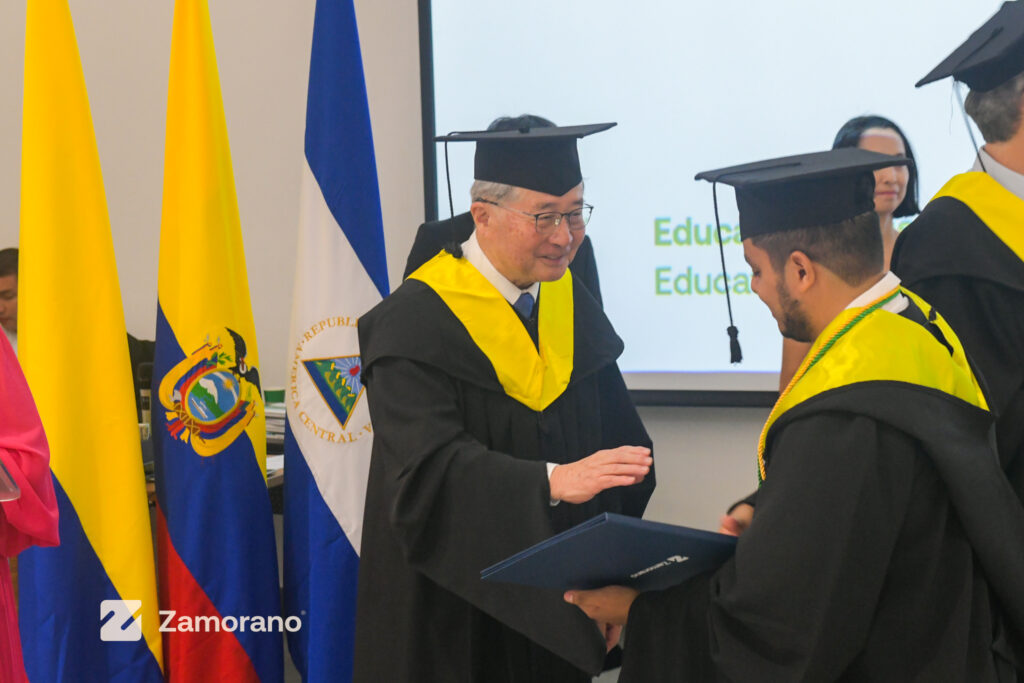
The ceremony was graced by the distinguished presence of representatives from the Nippon Foundation, including: Takeju Ogata, President; Kiyomi Takahashi, Program Director; James Huffman, Senior Officer; Kairi Yamada, Senior Project Coordinator; and Hiroki Nishiyama, Program Officer.
Dr. Joaquín Lozano, Regional Director for Latin America and the Caribbean at CGIAR, addressed the graduates as the keynote speaker. During his speech, Dr. Lozano emphasized the importance of the work done by the graduates: "The work of people like you, students who have graduated from the Master's in Sustainable Tropical Agriculture, is essential for the word 'FUTURE' to continue to make sense. That is why CGIAR, aware of this importance, has decided to support Zamorano so that this master's program, which now concludes after training 75 young professionals in five cohorts, remains a beacon of hope and development."
The graduation of this cohort not only symbolizes the end of an educational program but also marks the beginning of a new phase for professionals who are now ready to apply their knowledge and skills in pursuit of a more sustainable and prosperous future for tropical agriculture.
